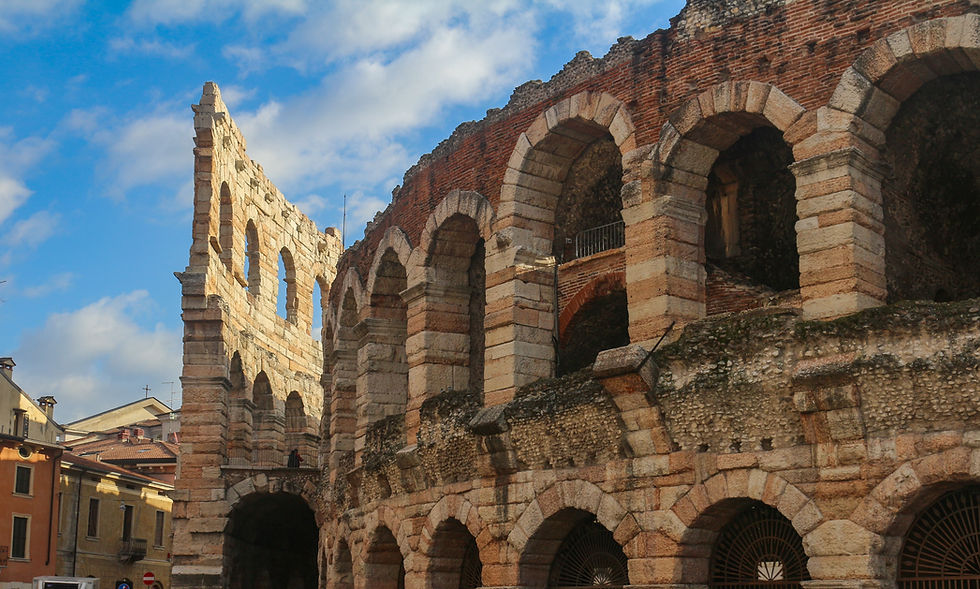

THE HISTORY OF VERONA
The ancient origins
Verona has very ancient origins. The first human settlements date back to the Neolithic, especially on the San Pietro hill. Over time, the area was inhabited by the Etruscans, Celts and finally by the Romans, who in the 1st century BC transformed Verona into a strategic colony. Its position at the crossroads of important consular roads made it a leading commercial and military center in northern Italy.


The Roman Age
During Roman rule, Verona experienced a period of great splendor. The Arena was built (1st century AD), still one of the best preserved amphitheatres in the world, used for gladiatorial games and shows. The Roman Theatre, the Arco dei Gavi and Porta Borsari also date back to this period. The Latin poet Catullus, probably born in Sirmione but often associated with Verona, represents the literary soul of this era.
.
The Middle Ages and the Scaligeri
After the fall of the Roman Empire, Verona was ruled by the Goths, the Lombards and then the Franks. In the 11th century it became a free municipality, but its real golden age came in the 13th century with the rule of the Della Scala (Scaligeri) family. Under Cangrande I della Scala, Verona flourished artistically and politically. Castelvecchio, the Ponte Scaligero and the Arche Scaligere were built. During this period, Dante also found hospitality at the Veronese court.
The Venetian era (1405–1797)
In 1405 Verona voluntarily submitted to the Republic of Venice. The Serenissima guaranteed stability and development, making Verona one of the most important fortified cities of the Venetian dominion. The great Renaissance gates (such as Porta Nuova) and numerous noble palaces date back to this period. Culture prospered and the city remained economically alive thanks to trade and craftsmanship.
Modern Age and Austrian Domination
After the fall of Venice in 1797, Verona passed first to Napoleon, then to the Austrian Empire. It was one of the four fortresses of the military “Quadrilateral” together with Mantua, Legnago and Peschiera. The city developed as a strategic place, full of soldiers and barracks. Verona remained under Habsburg control until 1866, when it was annexed to the Kingdom of Italy after the third war of independence.
Verona united with Italy
With the Unification of Italy, Verona became part of the Kingdom and then of the Republic. The city modernized, grew industrially and, over time, also became an important cultural center. During the Second World War, it suffered severe bombings but was able to get back up, proudly preserving its historic center and Roman and medieval architectural heritage.
Famous people born in Verona
-
Catullus: Latin poet, among the first authors of personal love poetry.
-
Paolo Veronese: Renaissance painter, famous in Venice and Europe.
-
Emilio Salgari: adventure writer (creator of Sandokan).
-
Ippolito Pindemonte: poet and translator, close to the ideals of the Enlightenment.
-
Gigliola Cinquetti: singer, winner of the Sanremo Festival 1964.
-
Ivana Spagna: pop and dance singer.
-
Amadeus: well-known television and radio host.
-
Lorenzo Fontana: current president of the Chamber of Deputies.
SOME PHOTOS AND HISTORICAL POSTCARDS OF VERONA





